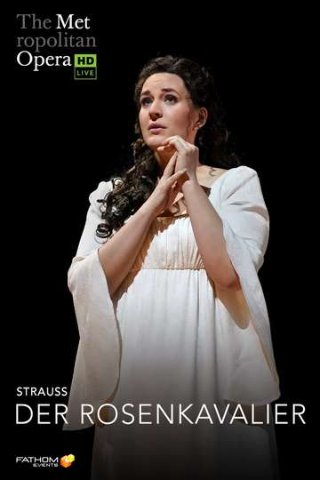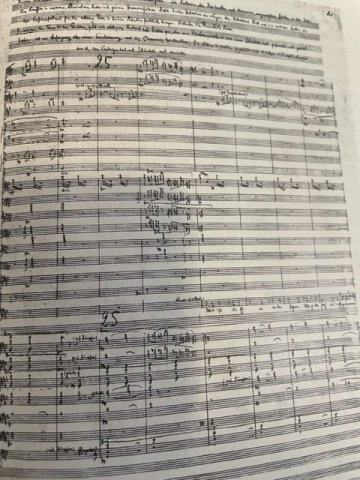Der Rosenkavalier at the Metropolitan Opera
Great Singing Across the Boards
By: Susan Hall - Apr 08, 2023
Richard Strauss preferred to spell the title of his most popular opera: Der Rosencavalier. Thomas Mann may have called Strauss a bore, but the composer had a deep, light touch that many listeners love. The librettist Hugo von Hofmannsthal complained that Strauss had a frightful bent toward triviality and kitsch and “vulgarity rises as easily as groundwater.” So much for the waltzes Strauss wrote as anachronisms. Yet Hofmannsthal also appreciated the accuracy of Strauss’ dramatic instinct.
The opera began with conversations between Hofmannsthal and Count Kessler, a diplomat, scholar and director of the Cranach-Presse in Weimar. Kessler had mentioned a French operetta and also a novel. These were used to create the story of the Marschallin, an aging aristocrat who is in the throes of sexual passion when we meet her at the beginning of Act I. Her amour is twenty years her junior. For young sopranos who sing the role, it is the loss of this sexual love life that disappoints the Marschallin. As older singers take on the role, they dwell on the passage of time. Disappointment, whatever the cause, is not so clear in the current Metropolitan Opera production. No matter. The charm of this opera, which paid for the education of Hofmannsthal’s children, has continued to this day.
Lisa Davidsen, the Met General Manager’s great hope for a must-see diva, sings the lead role. Her voice is clarion clear and lush. So far, she has not dug deeply into the Wagner and Strauss roles she has undertaken. Yet she is able to capture the Marshallin’s cruelty and also melt our hearts.
Her bed mate at the opera's opening is a Massachusetts-born mezzo, Samantha Hankey, who is glorious. She dips in and out of the color and dynamic of her phrases and plays the trouser role of Octavian to a tee. Erin Morley, as the lovely Sophie, Octavian's new young love, is charming.
Gunther Groissbeok is resident at the Met this spring and undertakes Baron Ochs with surety. His Heinrich der Vogel in Lohengrin was first-rate.
There are many treats in the opera’s score. One of them is the famed tenor aria in Act I, which is often a cameo for the likes of Luciano Pavarotti and Jonas Kaufmann. Kang Wang is featured in this production and has a lovely light lyric voice that can span the challenging octaves Strauss enjoyed pressing on tenors.
I am not a fan of the new production, set in 1911, the year of the opera’s first production. Strauss and Hofmannsthal had placed the opera in a fantasy Neverland. Jokes about operettas and waltzes are part of the music’s charm. Producers of the opera might try to suspend time (also a comment on the Marschallin’s concession to it). Krzysztof Warlikowski, a favorite at the Bavarian State Opera, would make an interesting choice to set this opera.
It is well to remember that all the lead women in Strauss’s operas were influenced by the character of his wife and their relationship. (Alma Mahler’s catty remarks often form a false picture of the couple). It is to Strauss’s credit that he married a feisty, intelligent and gifted woman, who was always a difficult diva. He knew her well and loved her. She was a full partner. They were married for fifty-five years. Pauline Strauss had only one fit of uncalled-for jealousy. This incident became the opera Intermezzo. Strauss understood women, and particularly Pauline. She was in her late forties when Rosencavalier was composed.
As Strauss sat at the piano in their home in Garmisch Partenkirchen composing the exquisite final trio of the opera, he would from time to time hesitate or stop. Pauline would cry out, “More, more.’
Simone Young conducts at the Met. Many of her outings with Strauss, conducted in Munich, Vienna and Berlin, have been splendid and special. Here she brings out biting harmonies and acid strings along with the disillusion of the celesta. Yet the vocal and the instrumental lines were not enmeshed. Their separation leaves a promise of Strauss's score unfulfilled.
Had the voices been another strand in the orchestra’s texture, we too might have wanted much more.
Yet the strong plot, funny and touching, glorious tunes and vivid characters continue to entrance.


